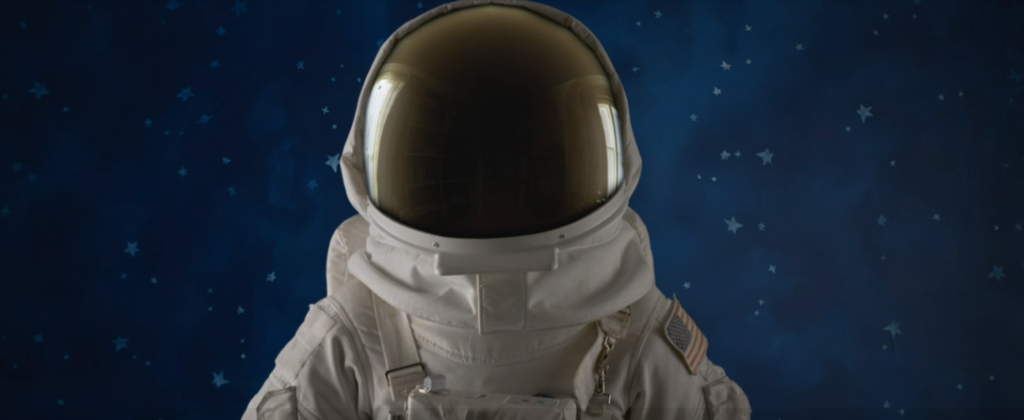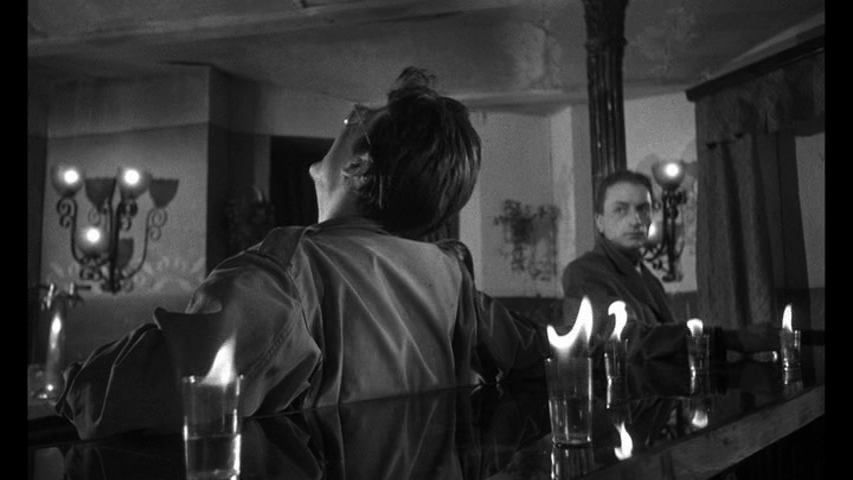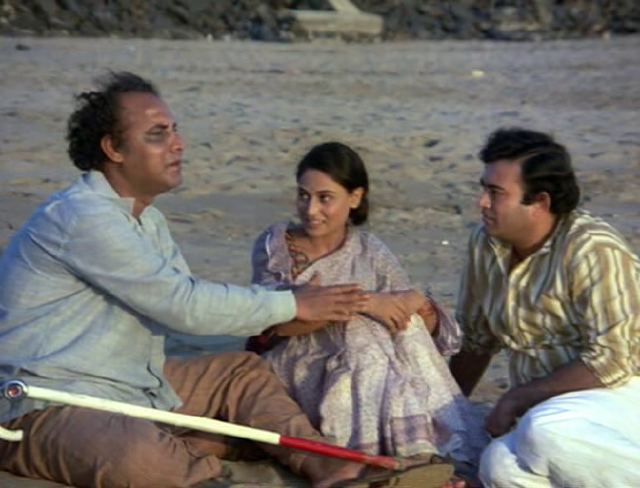Hereditary (2018) is one of the only films to ever leave me feeling truly horrible, but in a good way. No film has had such a profound psychological effect on my nightmares as Hereditary. It is a truly tense, gripping, and aggressive horror masterpiece. It is punctuated by especially excellent acting and screenwriting. And it is not limited to these qualities, as the production and post-production should also be praised. The film, of course, has issues, but these do not stop it from delivering a gripping experience.
Continue readingHereditary (2018). Reviewed by Benjamin Bergstrom
Crazy Rich Asians (2018). Reviewed by Kaia MacLeod
Having worked primarily on music- and danced-based films previously, director Jon M. Chu brings a distinct visual style to Crazy Rich Asians (2018), making the experience of watching the film both unique and memorable.
Continue readingThe Palm Beach Story (1942). Reviewed by Film Matters Spring 2019 Editorial Board
Contributors: Wyatt J. Bixby, Matthew Cook, Julia DeNigris, R. W. Freeman, Khai Hammett, Olivia Outlaw, Bonner W. Poston, Madison Rae Reitz, Debra Riddle, Selena Schmidtke, Makenzie N. Smith, and Miranda A. Sprouse.
Kalo Pothi (2015). Reviewed by Dikshya Koirala
Introduction
The movie Kalo Pothi [English: Black Hen] is a Nepali movie directed by Min Bahadur Bham. This movie is set around the northwestern part of Nepal and is the first Nepali movie to be screened at the Venice Film Festival. The highest-grossing Nepali movie overseas, it was also the first Nepali movie entered in the Academy Awards.
Continue readingUnsatisfied and Unhappy. My Film Festival by Miranda Sprouse

Figure 1: Shot of the gas chamber door in The Boy in the Striped Pajamas (Miramax, 2008), directed by Mark Herman; 1:29:05
The harsh truth of reality is that not every story has a satisfying conclusion. Life does not always work out the way that we want. This is reflected not only in life, but also in cinema. The theme of an unhappy ending applies to The Boy in the Striped Pajamas (Herman, 2008), The Lovely Bones (Jackson, 2009), and Avengers: Infinity War (Russo and Russo, 2018).
Continue readingAnnouncing the Results of the 2018 Film Matters Masoud Yazdani Award for Excellence in Undergraduate Film Scholarship
Film Matters is pleased to announce the winner of the fourth annual Masoud Yazdani Award, Nicole Veneto, for her FM 8.3 (2017) article, “’That lightsaber. It belongs to me.’: Patriarchal Anxiety and the Fragility of White Men’s Masculinity in The Force Awakens.” Nicole is currently a graduate student in the Women’s, Gender, and Sexuality Studies program at Brandeis University, where she landed after studying English and Women’s and Gender Studies as an undergraduate at Simmons University. She will be receiving a copy of The Star Wars Archives: 1977–1983, published by Taschen in 2018.
And, this year, for the first time in the history of this award, the judges asked to recognize a second Film Matters author with an honorable mention: Julia Glick, who published “Today I’m Going to Test You: Oppositional Cyborgs and Automated Anxiety in Ex Machina,” also in FM 8.3 (2017). Julia wrote what was to become this article while an undergraduate student at the University of California, Berkeley, studying gender and women’s studies. Interestingly enough, she wrote a second article for Film Matters, published in FM 9.1 (2018), “We’ll Teach Them Tricks: Reinstating Normative Hybrid Futures in Alien: Resurrection,” which will be in contention for this year’s award! Julia will be receiving a copy of Staying with the Trouble: Making Kin in the Chthulucene (Duke University Press, 2016), by Donna J. Haraway.
We must celebrate, again, this year’s wonderful panel of judges, whose work in reviewing the 2017 volume year of FM articles on our behalf was much appreciated:
Michael Benton, Humanities Professor at Bluegrass Community & Technical College, specializes in film studies, documentary, and peace and conflict studies and hosts the Bluegrass Film Society.
Ari Laskin, Assistant Professor in Media Arts & Culture at Occidental College, is a film theorist, media historian, and filmmaker who teaches courses in global film and media, film genre, critical and visual studies, and film production.
Elizabeth Ward, Lecturer in German at the University of Hull, is a cultural historian specializing in East German cinema and film in the Cold War and has published on both East German film and twenty-first-century German cinema.
Special thanks are due to Michael Benton, who is doing his second tour of duty with us as judge! And a big thank you is also owed to the guest editor responsible for selecting and publishing these two peer-reviewed articles, Fabrizio Cilento, and his students at Messiah College, in their contemporary science fiction dossier that featured in FM 8.3 (2017).
Each year, Film Matters honors Masoud Yazdani, founding chairman of Intellect and all-around visionary who is very much missed, by recognizing an emerging undergraduate film scholar who has published a peer-reviewed article in Film Matters the previous volume year. The winning author, selected by three individual academics based at institutions of higher education worldwide, receives a book from the field of film studies, in recognition of his/her achievement.
We are eager to get started on the judging for the 2019 award! All volume 9 (2018) feature article and/or peer-reviewed authors will automatically be considered for this distinction. Upon the release of Film Matters issue 9.3 (2018), we will put out a call for judges.
The Astronaut Helmet in Wonder. By Miranda Sprouse

Figure 1: Medium close-up of Auggie (Tremblay) in an astronaut suit in Wonder (Lionsgate, 2017), directed by Stephen Chbosky; 0:01:13
In the movie Wonder (2017), directed by Stephen Chbosky, August “Auggie” Pullman (played by Jacob Tremblay) suffers from a facial deformity. As he braces himself for his first year in public school, he must deal with bullies, standing out, and learning to be himself. A clear visual motif in this movie is Auggie’s astronaut helmet. It has many meanings for Auggie, but the main purpose of it is to help him cope with being different.
Continue readingIt Is All an Illusion: Perfect Blue on Social Media and Celebrity Culture. By Jasper Chen
This video essay analyzes the similarities between modern-day self-imaging via social media and celebrity culture within the framework of Satoshi Kon’s 1997 masterpiece Perfect Blue. In vacillating between reality and hallucinatory fantasy, the protagonist Mima becomes unable to distinguish between the two, leading to a loss of self not unlike what one experiences through social media. Facades and fronts are put on in these virtual hubs, belying true natures and enticing others, too, to lose themselves in false fantasies. Beyond forecasting a grim tale of modern-day media culture, however, Perfect Blue proposes a solution.
Author Biography
Jasper Chen is a senior at USC’s School of Cinematic Arts studying Cinema & Media Studies. Beyond writing about film and TV, he has a deep passion for storytelling, particularly on a worldwide and universal platform.
Visual Motifs of Fate in Andrzej Wajda’s Ashes and Diamonds. By Olivia Outlaw

The film Ashes and Diamonds (Andrzej Wajda, 1958) is chock-full of visual motifs that display the movie’s main theme of fate. The film follows Maciek (Zbigniew Cybulski), a young man who is part of the Polish resistance in post-WWII Poland, as he battles with his responsibilities to the Polish resistance versus his desire to live and love. We see several motifs with the use of the cross, fire, and Maciek’s glasses. These elements visually show the audience Maciek’s inability to pursue the life he longs for as fate takes control and determines his ultimate destiny at the end of the film.
Continue readingThe Disability Narrative in Indian Cinema. By Harsh Mahaseth
Disability has been widely misunderstood by Indian society due to constant social marginalization and a lack of sensitization and awareness amongst the general public. While several entities have tried to bring about this awareness, their reach has been rather limited. Given this lack of awareness amongst the general public, media representation can provide a powerful medium for dissemination. Given the wide reach of the Bollywood industry, it can prove to be an effective tool for changing people’s perceptions and uprooting social stereotypes.[1]
Continue reading










































